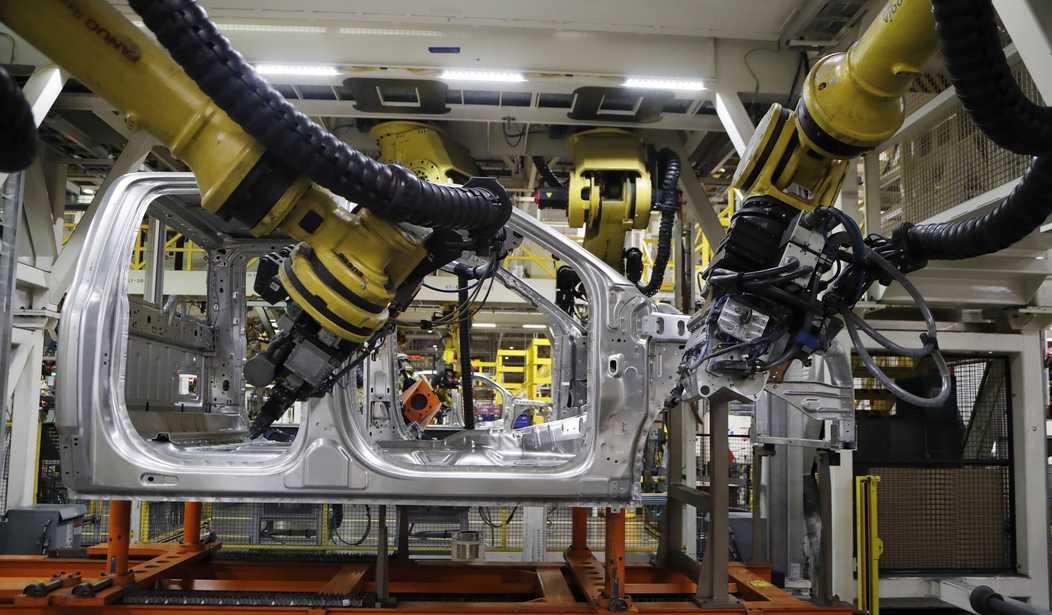So-called “deaths of despair” in rural areas — from drug overdoses and suicide — have become so common that they have even affected our national life expectancy figures. Life expectancy in the United States has fallen for three years in a row. That is a reversal not seen since 1918 (during a pandemic) or in any other wealthy nation in modern times, as Nobel-prize winning economist Angus Deaton has pointed out. What should be done?
Small town woes in many areas can be traced to the erosion of manufacturing jobs. A typical example is Lordstown, Ohio (population 3,300) which revolved around a now-shuttered manufacturing plant for 50 years. “The feeling in the plant my last day was eerie, because nobody knew what to say,” noted a metal assembly worker employed at the Lordstown factory for 22 years until it closed.
Economists like Erika-Grace Davies advise small towns to create “an institutional environment that promotes productive entrepreneurship and market competition [so that] they can maintain progress and resiliency,” even when old industries fade. That approach differs from the growing chorus of respected writers and renowned economists suggesting that Americans in dying towns should pack up and move from depressed areas to booming ones.
Leaving may be a good idea in some cases, but many people would prefer not to move. A recent Gallup poll found that 27 percent of Americans would like to live in a rural area — more than chose any other option. “I don’t want to let our house go, but it has to be done,” stated one former Lordstown factory worker sadly during an interview last year, gazing at the farmhouse where she grew up.
With the right legal and regulatory institutions, a small town can encourage entrepreneurs to open businesses. Research has found that the strength of the local economy is a top factor in the decisions of Iowans to return to their rural hometowns after college. Remote work is also often a factor, and as advancing technology makes remote education and work feasible for an ever-growing share of the population, it could help reinvigorate rural areas.
Recommended
Small towns can be hubs for entrepreneurship of many kinds: an accounting company founded in Clear Lake, Iowa (population 7,700), has grown to several hundred employees while maintaining its small-town headquarters. A software company founded in Stowe, Vermont (population 4,300) now employs more than a hundred people in two rural locations.
Creating economic growth through the bottom-up flourishing of businesses is much more sustainable than the short-term stimulus packages supported by the confused advocates of a return of so-called “industrial policy.” The government has already spent billions of dollars trying to draw jobs and prosperity to stagnant rural areas, to no avail. Recent tariffs intended to help U.S. workers are actually harming the U.S. manufacturing industry. In fact, the U.S. manufacturing sector has been producing record-setting output year-after-year and does not need rescuing — except from the tariffs. The industry employs fewer people because more jobs can now be done by machines.
An upswell of entrepreneurship is only possible when policymakers take a strong stand against cronyism and lobbying by established businesses designed to undermine new enterprises and innovative competitors.
Davies’ research shows that Williamsport, Pennsylvania (population 28,300) once had the most millionaires per capita of any city in the United States, during the lumber boom of the 1800s. But the local government backed a single lumber company, giving it an effective monopoly. That mistake ultimately decreased entrepreneurship and harmed Williamsport’s economy, which has only recently revived thanks to the fracking boom. When local governments resist rent-seeking behavior, entrepreneurs are then able to innovate and draw new wealth into the town.
Some towns, residents will decide, are worth saving. Even the most committed urbanite would be hard-pressed to deny the charm, tranquility, natural beauty, and neighborly goodwill that can often be found in villages, small towns and other rural locales.
As cities grow, many small towns will fade away. Each small town’s fate will ultimately be decided by its residents: they may vote with their feet by moving away, or they may stay and attempt to revive their communities. If they choose the latter option, they should strongly consider the following advice: for a small town to flourish, it must become a place where free enterprise flourishes as well.
Chelsea Follett is a policy analyst at the Cato Institute.

























Join the conversation as a VIP Member